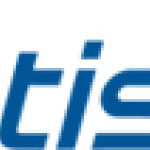- Industria: Telecommunications
- Number of terms: 29235
- Number of blossaries: 0
- Company Profile:
ATIS is the leading technical planning and standards development organization committed to the rapid development of global, market-driven standards for the information, entertainment and communications industry.
1. A protocol that reveals a secret key to its legitimate participants for cryptographic use. 2. The procedure to share a common secret key among different parties by either key agreement or key transport.
Industry:Telecommunications
1. A Protected/private alphanumeric string used to authenticate an identity or to authorize access to data. 2. In data communications, a word, character, or combination thereof, that permits access to otherwise inaccessible data, information, or facilities. 3. A character string used for authentication. 4. Confidential authentication information, usually composed of a string of characters. 5. A private character string that is used to authenticate an identity.
Industry:Telecommunications
1. A profile that specifies one or more interoperable open systems interconnection stacks that are intended to cover one or more specific functional areas. Note: Examples of standardized profiles are the ISO standardized profiles and the NATO standardized profiles. 2. A balloted, formal, harmonized document that specifies a profile.
Industry:Telecommunications
1. A product or system to be evaluated. 2. An ITSEC system or product which is subject to security evaluation.
Industry:Telecommunications
1. A procedure that is used to detect whether data have been modified either accidentally or intentionally. Synonym modification detection. 2. A mechanism which is used to detect whether a data unit has been modified (either accidentally or intentionally. )
Industry:Telecommunications
1. A person, organization, or other entity (including a computer or computer system,) that employs the services provided by a telecommunication system, or by an information processing system, for transfer of information. Note: A user functions as a source or final destination of user information, or both. Synonym subscriber. 2. Person or process authorized access to an IS (information system); An individual defined, registered, and bound to a public key structure by certification authority. 3. A person who interacts with a system. 4. Any person who interacts with a computer system. 5. Any person who interacts directly with a computer system.
Industry:Telecommunications
1. A partially ordered mathematical set for which every pair of elements has a greater lower bound and a least upper bound. Note: A lattice may be used to represent the relationship between security classes. A security clearance specifies the least upper bound of security classes of objects for which access rights may be granted. See also: Dominance. 2. A partially ordered set for which every pair of elements has a greatest lower bound and a least upper bound.
Industry:Telecommunications
1. A nonlinear analog circuit or device that accepts as its input two different frequencies (signals) and presents at its output (a) a signal equal in frequency to the sum of the frequencies of the input signals, (b) a signal equal in frequency to the difference between the frequencies of the input signals, and (c) if they are not filtered out, (c) the original input frequencies. Note: A nonlinear mixer may be used for amplitude modulation (AM) of rf carriers. See heterodyne. 2. A linear analog circuit or device that accepts as its input two or more different signals (e.g., from audio channels,) adds them algebraically, and presents the sum at its output. Note: For example, a linear mixer of audio signals may be used to combine signals from several microphones for purposes of recording on a common audio track.
Industry:Telecommunications
1. A network that allows functionality to be distributed flexibly at a variety of nodes on and off the network and allows the architecture to be modified to control the services. 2. In North America, an advanced network concept that is envisioned to offer such things as (a) distributed call-processing capabilities across multiple network modules, (b) real-time authorization code verification, (c) one-number services, and (d) flexible private network services. Levels of IN development are identified below:IN/1 A proposed intelligent network targeted toward services that allow increased customer control and that can be provided by centralized switching vehicles serving a large customer base. IN/1+ A proposed intelligent network targeted toward services that can be provided by centralized switching vehicles, e.g., access tandems, serving a large customer base. IN/2 A proposed, advanced intelligent-network concept that extends the distributed IN/1 architecture to accommodate the concept called "service independence. " Note: Traditionally, service logic has been localized at individual switching systems. The IN/2 architecture provides flexibility in the placement of service logic, requiring the use of advanced techniques to manage the distribution of both network data and service logic across multiple IN/2 modules.
Industry:Telecommunications
1. A method of encryption used where a requirement exists to prevent the decryption of the cipher text, given full information about the algorithm. Note: Often used for encryption of passwords and integrity checksums. 2. Synonym irreversible encryption.
Industry:Telecommunications
